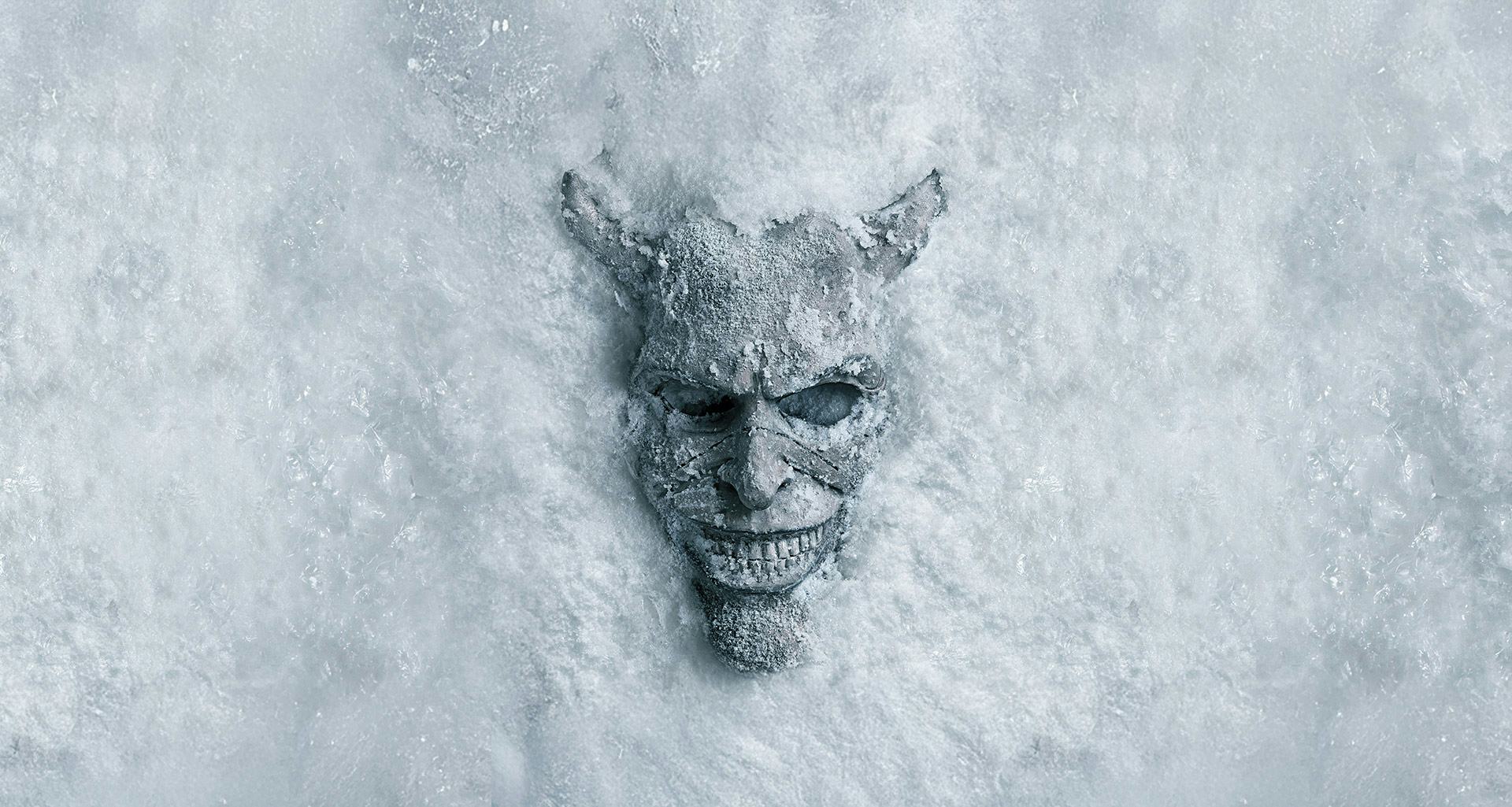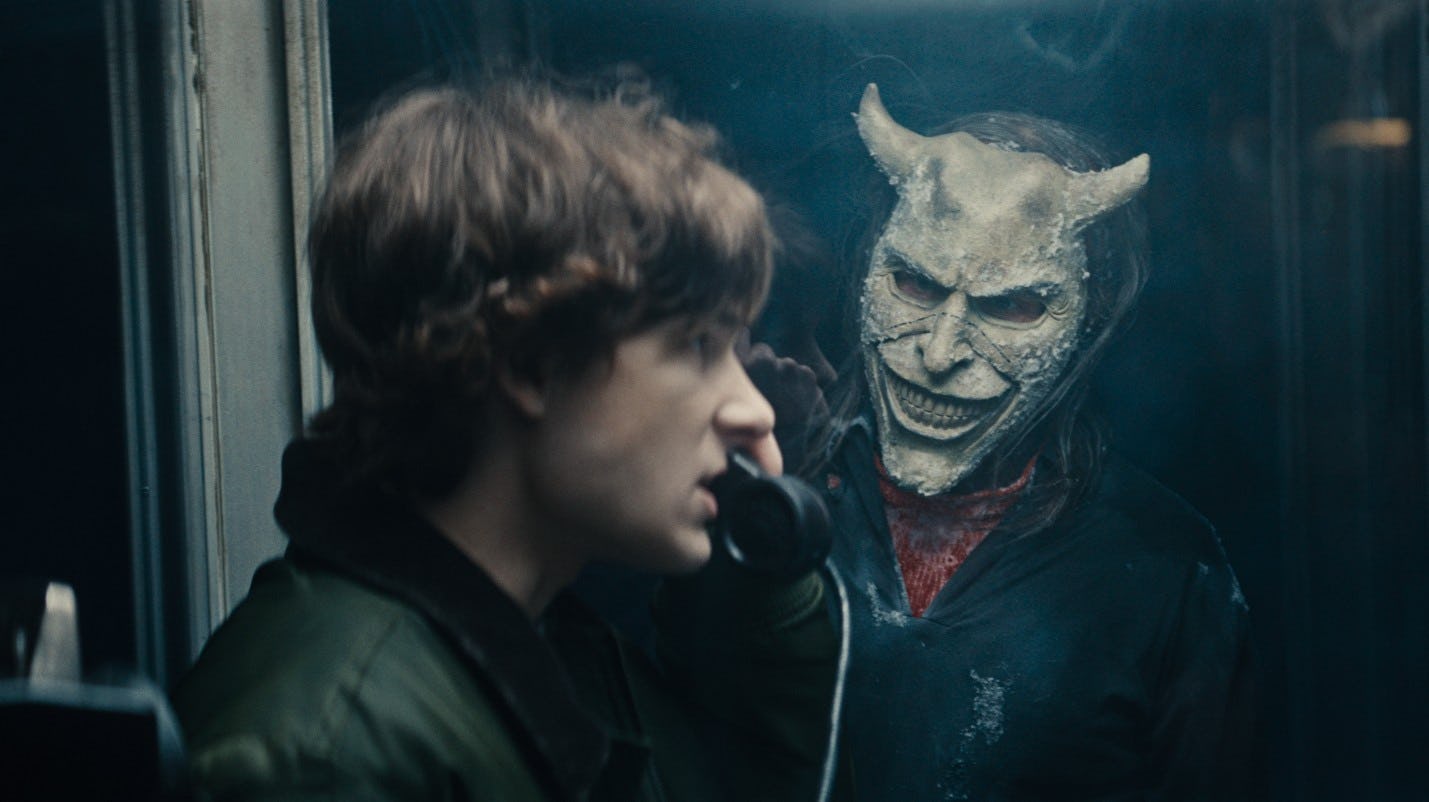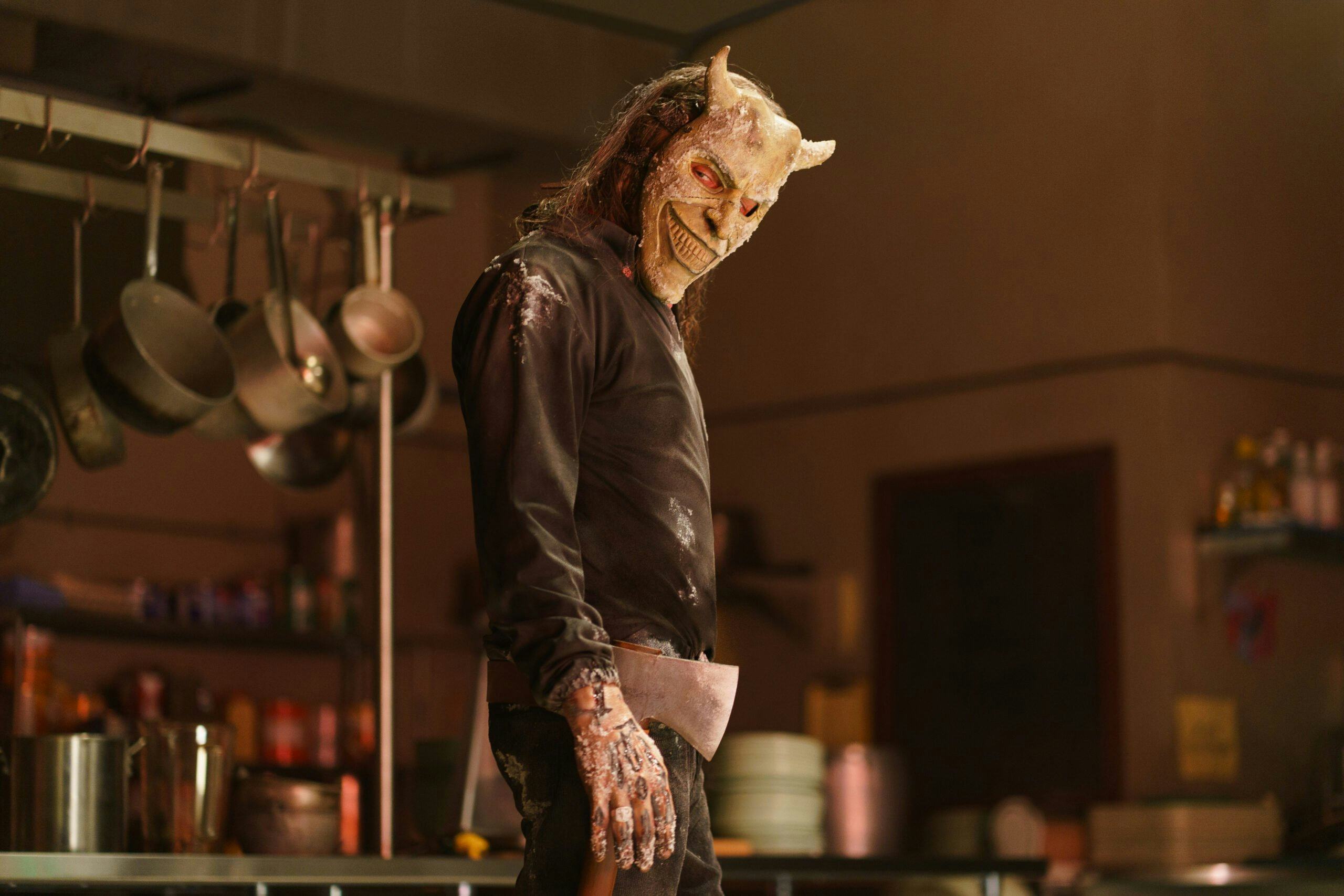
There’s a push and pull in Scott Derrickson’s follow-up film Black Phone 2 that bothers me. There’s a compelling continuation at the core of this second C. Robert Cargill-penned installment, one that gives us as much dreadful psychological tension as it does exciting adrenaline-pumping horror. But the strengths of the film are marred and overshadowed by a consistent push to make Christianity look cool and edgy, which leaves parts of the film feeling disjointed and, frankly, unrealistic.
The film picks up several years after the events of The Black Phone, in which central protagonist Finney (Mason Thames) slayed his captor, The Grabber (Ethan Hawke). The mysterious man with a sinister smiling mask is a serial murderer who was discovered by Finney’s sister, Gwen (Madeleine McGraw), through psychic dream visions that led her to his basement lair. Four years after Finney’s return, his sister starts having new visions that lead the pair to a Christian youth camp full of secrets from both The Grabber’s past and their own.
But for a film franchise so focused on the idea of overcoming external forces who will stop at nothing to gain full control, it sure does a lot of preaching and prostrating, taking on a newfound religious zealotry that makes the audience feel as if a church member unexpectedly knocked on their door with a missionary speech prepped and ready. Worse still, through the decision to make Christianity a core focus in this second installment, it falls victim to something that has been percolating for some time: the reality that religious horror is simply no longer interesting to watch.

Through the course of Black Phone 2, we learn that Finney and Gwen’s mother, who becomes a central part of the mysteries of this chapter of the story, was deeply Christian and worked at a religious camp as a teenager. While this isn’t a negative in and of itself, it does represent the central issue with the movie: it relies heavily on a foundation that was shaky to begin with. If the film had used religion as a subtle framework, we could be talking about a much stronger version of this story. But alas, Black Phone 2 instead just awkwardly shoehorns Christianity in where it doesn’t need to be.
The main area where religion really starts to strain the story is in the dialogue. A prime example here is when Finney and Gwen finally arrive at the camp, which, by the way, takes about 40 minutes to get to despite being the focus of the narrative. Gwen spends a night in the boys dormitory where her brother and love interest Ernesto — younger brother of Robin, one of The Grabber’s victims from the first film — are sleeping. While in bed with Ernesto (Miguel Mora, who also portrayed Robin) in an attempt to stave off her visions, she mentions that she talks to Jesus often. His response to this admission garnered many a snicker and bewildered laugh when I saw the world premiere screening at Fantastic Fest, and it’s not unfounded. He responds by telling her he thinks it’s “hot” that she talks to Jesus.
It’s hard to hear dialogue like that and have it feel anything less than unnatural. Simply put, it’s just not how people talk, even teenagers who are just learning how to flirt. Further still, dialogue and overt situations like this — which comes up many times throughout the film, especially in the movie’s perfectly manufactured tear-jerker ending — become distracting and alienating to the audience because of how foreign these moments feel. Even its big finale, which is certainly in line with how many people process the afterlife, ends up feeling contrived because of all the forced Christianity interjections leading up to that point. It’s jarring and takes the audience completely out of the engaging artifice Derrickson and Cargill otherwise concoct.
The religious element feels forced into a narrative that didn’t need it, and ultimately the movie suffers as a result because it doesn’t feel good to be preached to when you don’t expect or invite it. Some folks could argue other films have done similar things over time, but knowingly going into a film with a religious angle negates the viewer’s threshold for complaint. It would be one thing if this story had a religious foundation from the start, if the original Black Phone had established this connection from the early moments of the first film, but it’s another thing entirely when you don’t see that sort of stuff coming.
Ultimately, though, Christian horror has become blasé and boring, which makes even the idea of being preached to almost a second backseat grievance. It doesn’t entirely erase those sins by any means, but it’s hard not to wonder how much stronger the second installment of this franchise might have been if it didn’t touch religion or Christianity whatsoever. It’s gotten to the point where “the power of Christ compels” you has, well, no power here anymore. All the tropes are tired, all the classic lines played out. The film, and its subsequent sequels no doubt, would benefit from shirking its laser focus on religion in general, and allowing the characters another route to defeating The Grabber, one that comes from them and not a higher power.

But I’d be remiss not to say that Black Phone 2 has some very stark positives despite the overall dark cloud of religion that taints the overall experience. The film establishes a great visual language that’s both purposeful and intriguing to look at, giving the audience a Thames does some excellent emotional work as Finney in the throes of trying to recover from his harrowing encounter with The Grabber, while McGraw has a beautifully innocent determination and grit as Gwen. Mora also does an excellent job channeling a timid, sweet, and misunderstood teenager with a crush who has to step up when the going gets understandably tough.
Speaking of performances, one of the best things about the movie is the awesomely campy and fun third act that makes up for much of the preaching of the rest of the film — and much of the success of that section of the story lies in the performances and the go-for-broke choreography of the scene, which takes place on a frozen lake at the camp. It’s mean and full of spunk, and the arc within the sequence takes so many turns you’re never quite sure how it’s going to pan out for our protagonists. Plus, Ethan Hawke’s Grabber is in potentially his most wild form yet, and it’s endlessly fun to see him conjure up chaos in the film’s final act.
Ultimately, Black Phone 2 gives too many after-school special vibes to meet the strength of its predecessor — but when it takes a dip in the wacky and wild Nightmare on Elm Street 3 pool (or frozen lake, if you will), it’s worth every bit of the dreadful chill.







